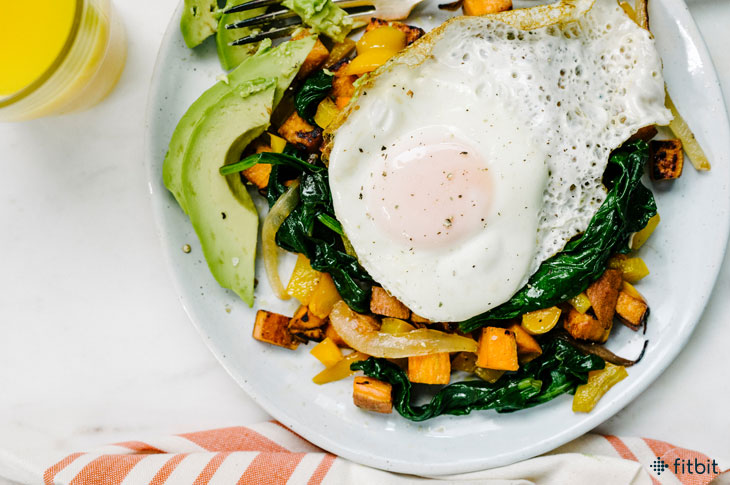
Is Whole30 the new, tougher Paleo? It seems to be the healthy eating trend of the moment, attracting thousands of followers, with a book on the New York Times bestseller list. The creators don’t want you to think of the 30-day program as a diet, but rather a “reset” or “lifestyle plan,” to get you eating “good food.” So what do you actually get to eat? Similar to Paleo, it pushes protein, veggies, some fruit, and plant fats, and completely cuts out grains, beans, sugar, dairy, and processed foods. But it gets even stricter—banning any attempts at slipping in treat foods, even made with Whole30-approved ingredients. The promise: to end your cravings, restore your metabolism, heal your gut, and balance your immune system. But, let’s be honest, the real reason most people try this program is to lose weight. Can it do all these things, or is it just another fad?
The Benefits of the Whole30 Diet
No doubt, any diet that encourages you to eat real, unprocessed food is a step in the right direction. Whole30 gets you to take a big (month-long) step back and consider all the unhealthy choices you’ve been making. There are some positive changes the diet encourages:
- No added sugar: Most Americans eat way too much sugar, and could do with reducing their intake, but going cold turkey could be tough. (Aiming to eat just 6 teaspoons a day may be a more realistic approach to cutting down on the sweet stuff.)
- No processed food: Most ultra-processed food is too sweet, too salty, and contains unwanted preservatives and chemicals. The typical US diet is overloaded with them and backing off of boxed and packaged foods could improve your health.
- No artificial sweeteners: Artificial sweeteners have been shown to mess with the good bugs in your gut, disrupting how your body handles sugar, so booting these isn’t a bad thing, either.
- No alcohol: You don’t need alcohol—it doesn’t provide any essential nutrients (red grapes contain resveratrol, too!), so your liver will probably welcome the break from booze.
- More mindfulness: The plan urges you to be more thoughtful about the choices you make going forward. Bringing mindfulness to mealtimes is a great way to help you make better choices, have a healthier relationship with food, and even lose weight.
It is only 30 days, so if your habits have gotten a little crazy, like over the holidays, it can be a good way to clean up your diet, and plan your food choices in advance. Sometimes having fewer choices can simplify your life, making it easier to stay focused, at least in the short-term.
The Concerns about the Whole30 Diet
Any diet that removes entire food groups and encourages drastic changes is unlikely to be sustainable. Most people find the diet hard to stick to, and you might not make it to the end of the 30 days—or hate it and struggle all the way through. Extreme yo-yo dieters may be tempted to get into a cycle of on-the-diet versus off-the-diet (read: restricting versus binging), or think longer is better, and go for more than the recommended 30 days, resulting in nutritional deficiencies. The biggest concerns stem from avoiding these healthy foods:
- No grains: Whole grains provide a host of health-promoting benefits, from cancer-fighting to better weight control, and by avoiding them you’ll be missing out on essential vitamins, minerals, and antioxidants. On the Whole30 plan, you may end up feeling hungry and low in energy, and low-carb diets are notorious for causing constipation.
- No legumes: There’s no evidence that cutting out beans, chickpeas, or lentils will benefit your health. In fact, the opposite is true—plant protein can reduce inflammation, lower your risk of disease, and help you lose weight. So why banish the humble bean?
- No dairy: Like gluten, dairy gets unfairly victimized in the dieting world. It’s true that some people can’t digest lactose. But for the vast majority of people, dairy is a rich source of nutrients, particularly protein, calcium, vitamin D, potassium, and choline. If you struggle with lactose, lactose-free dairy is a great option. Diets high in calcium from dairy have been shown to assist with weight loss by helping you absorb less and burn more fat. The protein in dairy also helps you to feel full—a bonus you won’t get if you’re doing Whole30 with the intent to lose weight.
- It’s not a true elimination diet: If you suspect you have food sensitivities, following a one-size-fits-all diet will not help you figure these out. A registered dietitian with experience in food intolerances is a much better bet. In particular, Whole30 does not eliminate many plant foods which are common triggers for people with IBS, such as onion, garlic, artichokes, and pears.
- No room for life: Having wiggle room for the occasional treat is a much healthier approach to eating. Deprivation diets can end in bingeing and feelings of guilt, and you’d be hard-pressed to find a month in the U.S. calendar that doesn’t include a holiday or celebration. A more balanced 80:20 mindset, in which you make healthy choices 80 percent of the time and leave room for life to happen the other 20 percent, will teach you how to approach indulgences and celebrations every day of the year, not just 30.
The Final Takeaway on the Whole30 Diet
Your friend’s short-term results might be great, but there haven’t been any scientific studies done specifically on the Whole30 diet yet. So at this point, you can be pretty certain, like most crash diets, once you’re back in the real world, the weight and unhealthy habits are likely to creep back in.
If the Whole30 diet gets you to skip ultra-processed goods, and turns you into a meal planner, writing healthy shopping lists and cooking from scratch with fresh ingredients, fantastic! But take heed: following an unrealistic, restrictive plan, one that removes entire nutritious food groups, is not the best long-term approach to health. Instead, kickstart your journey to healthy eating by making small changes you can stick with over time, not just for 30 days.
This information is for educational purposes only and is not intended as a substitute for medical diagnosis or treatment. You should not use this information to diagnose or treat a health problem or condition. Always check with your doctor before changing your diet, altering your sleep habits, taking supplements, or starting a new fitness routine.

I got a fit bit and really do not know how to get it going .lol I am a 64 year old teacher and really am not good at all these new things! Could you help me get started?